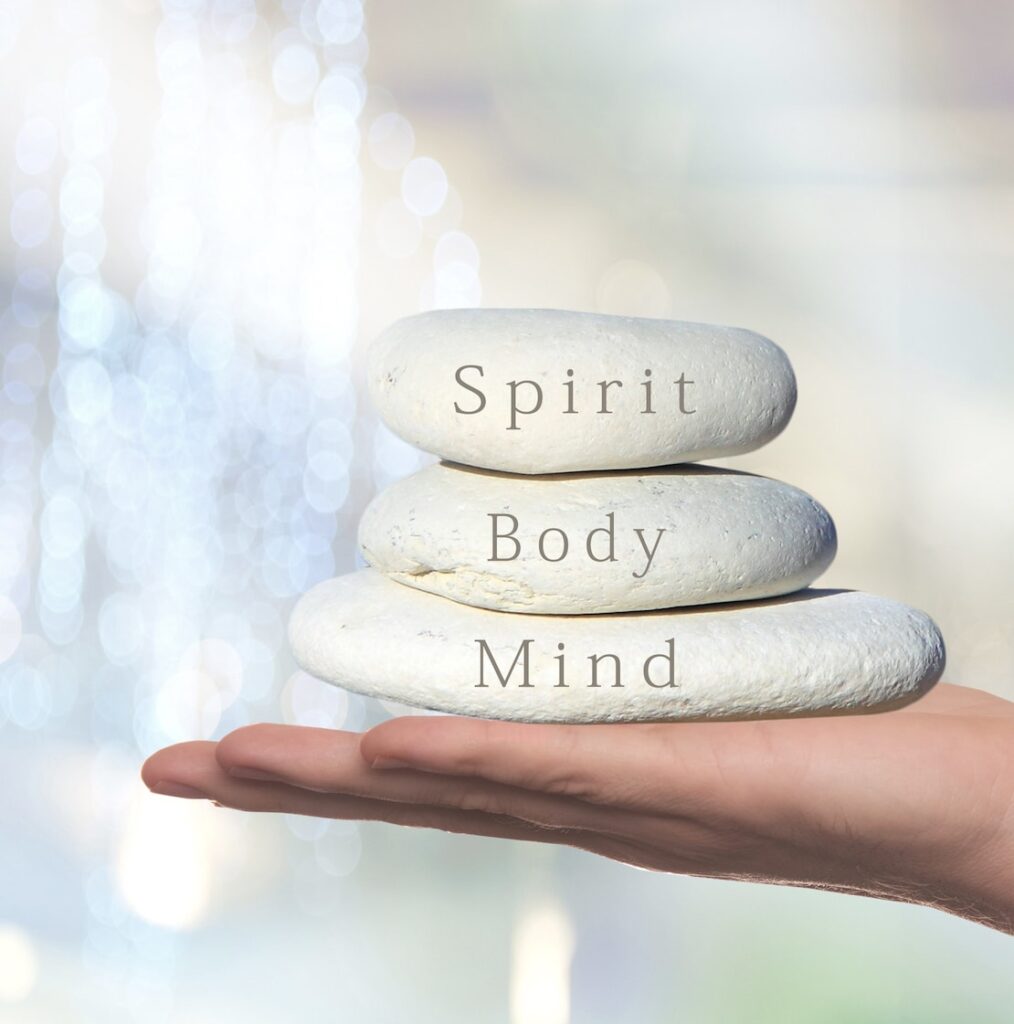In the pursuit of a fulfilling and balanced life, holistic well-being plays a pivotal role. This approach encompasses not only physical health but also mental and spiritual vitality. By nurturing the mind, body, and soul, individuals can achieve a harmonious state of being. This article explores key aspects of holistic well-being and offers practical insights to help you embark on a journey toward a healthier, more vibrant life.
Nurturing the Mind:
- Mindful Practices:
- Incorporate mindfulness techniques such as meditation and deep breathing to reduce stress and promote mental clarity.
- Cognitive Nutrition:
- Feed your mind with positive thoughts, learning experiences, and intellectual challenges. Engage in activities that stimulate your cognitive abilities.
- Digital Detox:
- Take regular breaks from screens to protect your mental well-being. Establishing boundaries with technology fosters a healthier relationship with the digital world.
Caring for the Body:
- Nutritious Eating:
- Adopt a balanced and whole-foods-based diet. Prioritize nutrient-dense foods to fuel your body and support overall health.
- Regular Exercise:
- Incorporate physical activity into your routine. Find activities you enjoy to make exercise a sustainable and enjoyable part of your lifestyle.
- Adequate Rest:
- Prioritize quality sleep to allow your body to rejuvenate. Establish a consistent sleep schedule and create a calming bedtime routine.
- Hydration:
- Drink an ample amount of water throughout the day to stay hydrated and support bodily functions.
Nourishing the Soul:
- Spiritual Practices:
- Explore practices that align with your spiritual beliefs, whether it’s prayer, meditation, or connecting with nature.
- Meaningful Connections:
- Cultivate strong and supportive relationships. Positive social connections contribute significantly to emotional well-being.
- Creative Expression:
- Engage in creative activities that bring you joy, whether it’s art, music, or writing. Expressing yourself creatively nourishes the soul.

In the modern pursuit of health and happiness, the concept of holistic well-being has gained prominence. This comprehensive approach addresses not only physical health but also mental and spiritual vitality. However, like any approach, it comes with its advantages and disadvantages.
Advantages of Holistic Well-being:
1. Comprehensive Health:
- Pro: Holistic well-being recognizes the interconnectedness of mind, body, and soul, promoting a more comprehensive understanding of health.
2. Stress Reduction:
- Pro: Mindful practices, a core component of holistic well-being, contribute to stress reduction and improved mental well-being.
3. Sustainable Lifestyle:
- Pro: Emphasizing nutritious eating, regular exercise, and adequate rest encourages the adoption of sustainable and lifelong healthy habits.
4. Emotional Resilience:
- Pro: Nurturing wellness of the soul through meaningful connections and creative expression not only fosters emotional resilience but also contributes to a holistic sense of well-being. Engaging in positive relationships and expressing oneself creatively are integral to nurturing the soul’s vitality and promoting overall wellness.
Disadvantages of Holistic Well-being:
1. Individual Variability:
- Con: Holistic well-being is highly individualized, making it challenging to create standardized guidelines that suit everyone.
2. Time and Commitment:
- Con: Implementing holistic practices may require a significant time investment, and some individuals may find it challenging to commit to these lifestyle changes consistently.
3. Lack of Scientific Validation:
- Con: Some aspects of holistic well-being lack robust scientific validation, leading to skepticism in conventional healthcare circles.
4. Complex Integration:
- Con: Balancing the multiple components of holistic well-being—mind, body, and soul—can be complex, requiring careful attention to each aspect.
What is a holistic approach to the mind and body?
- Mind-Body Connection:
- Acknowledges the intricate connection between mental and physical health. Emotional well-being can impact physical health and vice versa.
- Mindful Practices:
- Encourages the adoption of mindfulness techniques such as meditation, deep breathing, and yoga to promote mental clarity, reduce stress, and enhance overall well-being.
- Nutrition and Physical Activity:
- Recognizes the importance of a balanced diet and regular exercise not only for physical health but also for mental and emotional well-being.
- Stress Management:
- Focuses on stress reduction techniques to alleviate the impact of chronic stress on both mental and physical health.
- Emotional Wellness:
- Addresses emotional health by fostering positive relationships, encouraging self-expression, and providing tools for managing emotions effectively.
- Preventive Healthcare:
- Promotes preventive measures to maintain overall health, including regular check-ups, screenings, and lifestyle habits that support both mental and physical well-being.
- Holistic Therapies:
- Incorporates complementary and alternative therapies that consider the person as a whole, such as acupuncture, chiropractic care, and massage therapy.
- Personalized Approaches:
- Recognizes that each individual is unique, and there is no one-size-fits-all solution. A holistic approach tailors interventions to an individual’s specific needs and circumstances.
- Environmental Considerations:
- Considers the impact of the external environment on overall health, including factors like living conditions, work environment, and exposure to nature.
- Spiritual Well-being:
- Acknowledges the role of spiritual practices and beliefs in promoting a sense of purpose, inner peace, and connection to something greater than oneself.
- Integrated Healthcare:
- Encourages collaboration between different healthcare professionals, such as physicians, psychologists, nutritionists, and fitness experts, to provide a comprehensive and integrated approach to health.
How do you nurture your mind-body and soul?
Nurturing your mind, body, and soul involves adopting practices and habits that contribute to your overall well-being. Here are some suggestions for each dimension:
Nurturing the Mind:
- Meditation and Mindfulness:
- Practice meditation or mindfulness exercises to calm the mind, reduce stress, and enhance mental clarity.
- Intellectual Stimulation:
- Engage in activities that challenge and stimulate your mind, such as reading, learning a new skill, or solving puzzles.
- Positive Affirmations:
- Incorporate positive affirmations into your daily routine to promote a positive mindset and boost self-confidence.
- Journaling:
- Keep a journal to express your thoughts, feelings, and reflections. Journaling can be a therapeutic way to process emotions.
Nurturing the Body:
- Regular Exercise:
- Incorporate regular physical activity into your routine. Choose activities you enjoy to make exercise a sustainable part of your lifestyle.
- Balanced Nutrition:
- Adopt a balanced and nutrient-dense diet. Focus on whole foods, plenty of fruits and vegetables, and adequate hydration.
- Adequate Sleep:
- Prioritize quality sleep. Establish a consistent sleep schedule and create a calming bedtime routine.
- Hydration:
- Drink enough water throughout the day to support bodily functions and maintain overall health.
Nurturing the Soul:
- Spiritual Practices:
- Explore spiritual practices that resonate with you, whether it’s prayer, meditation, or connecting with nature.
- Meaningful Connections:
- Cultivate strong and supportive relationships. Spend time with loved ones and nurture positive social connections.
- Creative Expression:
- Engage in creative activities that bring you joy, whether it’s art, music, writing, or any form of self-expression.
- Nature Connection:
- Spend time in nature. Whether it’s a walk in the park or a hike in the mountains, connecting with nature can be rejuvenating for the soul.
Integrated Practices:
- Mind-Body Techniques:
- Explore mind-body practices like yoga or tai chi, which integrate physical movement with mindfulness and breath awareness.
- Holistic Therapies:
- Consider holistic therapies such as massage, acupuncture, or aromatherapy to promote relaxation and balance.
- Digital Detox:
- Take breaks from screens to protect your mental well-being. Establish boundaries with technology to maintain a healthy balance.
- Self-Reflection:
- Set aside time for self-reflection. Evaluate your goals, values, and priorities to ensure they align with your overall well-being.
Remember that nurturing your mind, body, and soul is a personal journey. Experiment with different practices to discover what works best for you, and be open to adjusting your routine as needed. Consistency in these nurturing habits can contribute to a more balanced and fulfilling life.
What are the 4 aspects of holistic health?
Holistic health is a concept that considers the interconnectedness of various aspects of an individual’s well-being. While the specific components can vary, four common aspects are often emphasized in the context of holistic health:
- Physical Health:
- This aspect focuses on the well-being of the body. It includes factors such as nutrition, exercise, sleep, and overall physical vitality. A holistic approach to physical health considers preventive measures, lifestyle choices, and the balance of bodily functions.
- Mental and Emotional Health:
- Holistic health recognizes the importance of mental and emotional well-being. It encompasses aspects such as stress management, emotional resilience, cognitive health, and mental clarity. Practices like mindfulness, meditation, and positive affirmations are often integrated to support mental and emotional balance.
- Social Well-being:
- Social health emphasizes the importance of positive relationships, community connections, and a supportive social network. Meaningful connections with family, friends, and the community contribute to a sense of belonging and emotional support.
- Spiritual Well-being:
- The spiritual aspect of holistic health goes beyond religious beliefs and involves a sense of purpose, inner peace, and connection to something greater than oneself. It encompasses exploration of personal values, ethical considerations, and a connection to nature or a higher power.






Calidad y precision en impresiones 3D
Impresora 3D Raise3D E2 raise3dprintere2.com.
Don’t Settle for Less – Get the FreeScan Combo 3D-Scanner Today!
FreeScan Combo 3D-Scanner http://www.shombo3dsca45.com/.
Efficient and Accurate 3D Scanning with FreeScan UE Pro 3D-Scanner
Shining3D FreeScan UE Pro 3D-Scanner http://33ee-can-ro.com.
Make Your Birthday Extra Special with a HBD 3d Printer
HBD 3d printer al-mret32.com.
Ultimative Herstellungstechnik fur jedes Projekt
2. Mit dem Modix 3D-Drucker
3. Fur professionelle Ergebnisse
4. Innovative Technologie fur kreative Kopfe
5. Modix 3D-Drucker: Mehr als nur Plastik
6. Hohe Qualitat zum erschwinglichen Preis
7. Kompakte Gro?e, gro?e Leistung
8. Modix 3D-Drucker: Perfekt fur Prototyping
9. Mit dem Modix 3D-Drucker
10. Jetzt schon verfugbar
11. Einfach drauflos drucken
12. In nur wenigen Schritten
13. Der Modix 3D-Drucker
14. Modix 3D-Drucker: Ein Muss fur jede Werkstatt
15. Erstellen Sie individuelle Designs
16. Modix 3D-Drucker: Mehr als nur fur Profis
17. Mit dem Modix 3D-Drucker
18. Der Modix 3D-Drucker
19. Unbegrenzte Moglichkeiten
20. Holen Sie das Beste aus Ihren Projekten heraus
Modix 3D-Drucker https://m0d1x-3d-druck3r.com/.
Our committed staff is here to support your child’s learning at our online elementary school.
Online elementary school http://claytoncomputerservice.com/.
Online Middle School https://newboldworld.com/.